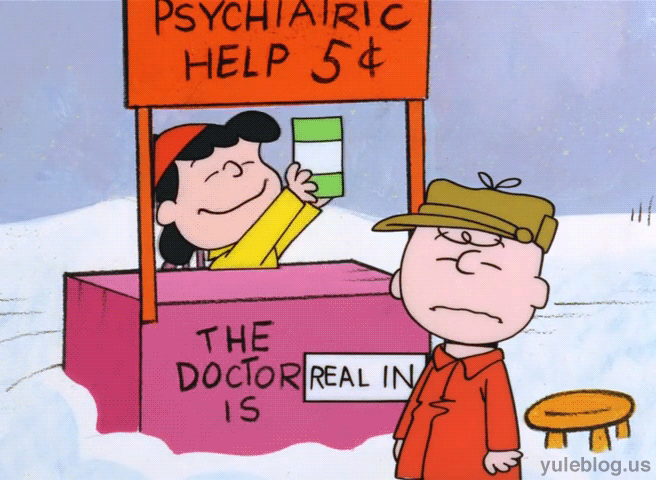
Today, I received the following email from David Blair Corbett, a licensed Canadian Evangelical counselor, and a pastor. You can check out his website here. Corbett wanted me to know that he is an authority figure. He listed all his degrees and qualifications: BSc, MSW, RSW, Ordained – CFCM (Canadian Fellowship of Churches and Ministers retired). Corbett also let me know that he knows he can “help” me.
Here’s what he had to say:
Hey Bruce,
I’ve read a bit of your writings on the net this morning here in *******. You are of similar age to me and I have *** adult children and a dear wife of *** years (in November). I still work full time in a 35 year old private practice I created to help people out of what I refer to as “performance-based churchianity”.
I am a licensed and registered psychotherapist (Masters in Clinical Social Work since 1987) and am a retired minister, ordained and commissioned to pastoral counselling.
Your story shared online saddens me deeply. I have worked with a significant number of men with similar narratives to mine and yours (the church became “the mistress”). I’m so sorry to hear your story and even sadder that such a deception of performance-based “trying to live for Jesus” was able to destroy your faith. I came close to losing my trust in God, I know what it feels like to make “churchianity” my mistress.
If you want to correspond, it’d be a real pleasure to talk openly with you.
Dear Dave,
I don’t want to correspond with you, and the reasons I don’t will become clear in a moment. I am direct and plain-spoken so I hope you will not be offended by what I say. I know you came to this site to “help” me, but it is you who actually needs help. I hope you will learn the lesson I am about to teach you, and that you will never, ever contact complete strangers on the Internet, offering them unsolicited advice.
You say that you read a “bit” of my story. You, in fact, read a minuscule bit of the 4,000+ posts on this site. Based on the server logs, you read the following posts:
- Black Collar Crime: Evangelical Youth Pastor Josh Henley Pleads Guilty to Sexual Exploitation of Minor
- Bruce Gerencser CLAIMS He Once Was a Christian
- It’s Time to Tell the Truth: I Had an Affair
- A Few Thoughts About Mental Illness and Depression
- Christians Say the Darnedest Things: Satan’s Attack on Families and How Believers Can Fight Back
I say “read,” but perhaps a better word is “skimmed.” According to the server logs, you were on this site all of four minutes — the time it takes to eat a ham sandwich — before you composed your email and clicked send. You did spend more time on this blog after emailing me. Maybe you had the aforementioned posts open in tabs and you went back to read them. I want to give you the benefit of the doubt, but more than a few counselors have come before you, each with their own offer of “helping” me, each as incurious as you are.
You clicked on the WHY? page. You had the opportunity to read thirty-two posts, the From Evangelicalism to Atheism series, and/or read/listen/watch thirteen interviews I’ve done in recent years. What did you do? You skimmed two posts and sent me an email. Here’s what your God has to say about this: Answering before listening is both stupid and rude. (Proverbs 18:13)
Much like many Christian drive-by armchair therapists, you made a snap judgment about my past and present life without doing your homework. You wrongly assumed that I was always an Independent Fundamentalist Baptist (IFB) preacher. I wasn’t. You wrongly assumed that the theology I had at twenty-one was the same theology I had at fifty. It wasn’t. As a result, you built in your mind a caricature of Bruce Gerencser, a false picture of who I am as a person.
You seem to suggest that if I had the “right” theology; the “right” view of God; the “right” soteriology; the “right” understanding of the works-grace paradigm I wouldn’t have deconverted. Or maybe you are subtly saying I never was a Christian to start with. Regardless, since you made no effort to understand my back story, you have no idea why I left Christianity and why I am an atheist today. While there is certainly an emotional component to my loss of faith, the primary reasons for my deconversion are intellectual. The bottom line is this: I am no longer a Christian today because I came to see that the central claims of Christianity are not true. They no longer make sense to me (Please see The Michael Mock Rule: It Just Doesn’t Make Sense). Regardless of how one might view my experiences and beliefs as a pastor, one salient fact remains: Christianity is built on a foundation of myths and lies. The Bible is not inerrant or infallible, virgins don’t have babies, dead people don’t come back to life, and all the miracles attributed to Jesus are fictional stories. I see no evidence for the existence of the Christian God of the Bible.
I left Christianity in November 2008 — almost fourteen years ago. I have found writing to be quite therapeutic. My goal has always been to tell my story, hoping that others might find strength and encouragement. I want readers to know that this is a safe place for them; a place to tell their own stories; a place safe from the Daves of the world. Thousands of people read my writing every day. I am humbled by this fact; that in my brokenness people still think I have something to offer them. (And it goes without saying that I am blessed to have so many wonderful people offer me love, kindness, and support.) At the same time, I have received thousands of emails, social media messages, and comments from Evangelical Christians. Nasty, vile, hateful, violent, judgmental people; people who, like you, want to “help” me. Prooftexts, sermons, personal attacks, assaults on my character. Threats of judgment and Hell. Death threats. Attacks on my wife and children. If you want to “help” people, Dave, try helping your own. I don’t need your help.
Had you bothered to do a bit of reading, you would have learned that I have been seeing a licensed secular counselor (a psychologist) for over a decade. Snap, Dave, did it ever dawn on you that I might be seeing a counselor already? Of course not, because you see the desired outcome for me as a return to Christianity. My counselor, instead, desires for me wellness and happiness — no deity needed. I deliberately sought out a counselor who was not religious (in the Evangelical sense). Hard to find here in rural northwest Ohio, but fortunately, for me, my mental health needs have been well served by two secular counselors over the past decade.
My story “saddens you.” I suggest you seek out a competent secular counselor to help you with your sadness. Would it matter to you if I said that Iife is better for me in every way since I walked away from Christianity? Or are you one of those Christians who can’t imagine someone having a good life apart from your peculiar understanding of the Bible God? There’s nothing you could offer me, Dave, that would entice me to return to Jesus. Besides, if your God really exists, he knows where I live. He knows my email address and my text number. No need to send the Daves of the world to “help” me. I have no desire to return to the leeks and garlic of Egypt. I am quite happy in the Promised Land, a place where I am loved and accepted as I am.
Dave, you overstepped by emailing me. If you didn’t know that then, I hope you do now. Maybe you meant well. There’s no way for me to know since I don’t know you (nor do I want to know you). One thing is for certain: you know nothing about me. You should never have sent me your email. But you did. Hopefully, you have learned the lesson I tried to teach you today. Dear brothers, don’t ever forget that it is best to listen [read] much, speak little . . . (James 1:19).
Bruce Gerencser, ABC, RFD, OCPD, Thrice Ordained, Circumcised
After writing this post, I saw that you followed me on Twitter. What’s next, Facebook, Instagram, YouTube, and Tiktok? Are you a stalker? I know what you are up to, Dave. You might want to check out these posts:
- Beware of Evangelicals Coming in the Name of “Friendship”
- Bruce, I Want to be Your Friend — Part One
- Bruce, I Want to be Your Friend — Part Two
- Dear Evangelical, Here’s The Number One Reason We Can’t be Friends
- Just Remember, Evangelicals Always Have an Agenda
- Nice-to-Your-Face Christians
You also might want to read what I have written about Christian counseling:
- Beware of Christian Counselors
- Questions: Should People Trust Christian Counselors with Degrees from Secular Schools?
- Outrage Over Christian Counselor Post
- Why I Thought I was “Qualified” to Counsel Others
- Biblical Counseling, A Danger to Hurting Church Members
- Armchair Evangelical Psychologists
One more thought, Dave. Your introductory letter states the following:
Institute of Basic Life Principles (Basic and Advanced) and it’s Advanced Training Institute and Medical Training Institute of America (Dr. Bill Gothard) – many years of the week-long 32 hr. Basic Seminar and two times through the Advanced, we also homeschooled with them for 8 years.
Bill Gothard? Really? I’m speechless. Well, not really. I am quite familiar with Gothard, having pastored numerous people who were infected with BLP and ATI thinking. Oh, and my grandfather, a devout Fundamentalist Christian was a big Gothard fan too. He nagged me for years about attending one of Gothard’s seminars. No thanks. John was a violent drunk and a child molester BC (before Jesus), and a mean, nasty, violent man with Jesus. No thanks. (Please see Dear Ann and John.) You would have known these things had you bothered to do your homework.
You might want to check out my interaction with another Evangelical counselor, a judgmental ass if there ever was one. Please see Dr. Bill Clark Makes All Sorts of Claims About My Life, But Provides No Evidence for Them.
Bruce Gerencser, 68, lives in rural Northwest Ohio with his wife of 47 years. He and his wife have six grown children and sixteen grandchildren. Bruce pastored Evangelical churches for twenty-five years in Ohio, Texas, and Michigan. Bruce left the ministry in 2005, and in 2008 he left Christianity. Bruce is now a humanist and an atheist.
Your comments are welcome and appreciated. All first-time comments are moderated. Please read the commenting rules before commenting.
You can email Bruce via the Contact Form.





